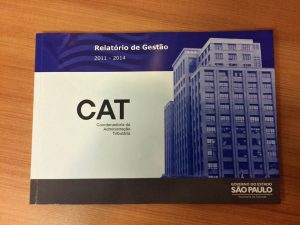The São Paulo tax authorities want to establish a new relationship with the ICMS taxpayers, more focused on dialogue than on repression. The idea is to reduce the assessments, which reach values close to R $ 30 billion per year in the State of SÃ £ o Paulo.
To try to achieve this goal, it created a new model in which it segmented taxpayers through “behavioral” notes in order to identify those who offer the least risk to the state coffers.
The classification considers three criteria: the payment of the tax based on the declared amount, the issuance of invoices compatible with the amounts declared to the tax authorities and relationships with suppliers that meet the same criteria.
The best positioned in the ranking will be treated differently. Among them, the receipt of accumulated ICMS credits without the need for financial guarantee, opening a dialogue channel with the tax authorities prior to the assessments, in addition to the chance to participate in decisions involving, for example , the simplification of accessory obligations and systems automation.
â € œThe repressive logic is not efficient. The international experiences of the most modern tax administrations show that this new model boosts fiscal regularity, â € says Rogà © rio Ceron, deputy secretary of the Finance Department of Sà £ o Paulo (Sefaz-SP).
DIFFERENTIATED TREATMENT
The benefits package to be awarded to the best classifieds has three fronts. One of them concerns inspection.
According to Ceron, the idea is to encourage self-regulation for taxpayers who represent the lowest risk.
Whenever the Treasury finds an inconsistency, instead of assessing it, it will notify the taxpayer, who may or may not accept the interpretation of the tax authorities. If the taxpayer disagrees, the matter will be taken to a committee prior to review. The idea is to prevent the disagreement from reaching the administrative level.â € â € œThe committee will be a pre-emptive step for him to clarify his reasons, which are often legitimate. This new stance will provide taxpayers with greater security and create a healthier business environment, â € he predicts.
The other benefit involves receiving the accumulated tax credits. Today, the taxpayer who enters the request to use accumulated credit is obliged to leave with the tax authorities a guarantee of 150% of the amount claimed.
According to the proposal, depending on the taxpayerâ € ™ s classification, he will be released from the guarantee requirement or his value will be less than what is currently charged. â € œIt doesn’t make sense to charge a high amount to lower risk groups. With the measure, there will be a reduction in the financial cost, â € he explains.
In a model similar to that used by risk rating agencies, the tax authorities classify taxpayers according to their exposure to tax liability risks in A +, A, B, C, D, E. A previous analysis that takes into account the current default rates, according to Sefaz, shows that about 80% of taxpayers tend to be classified up to position C.
“In São Paulo, the majority of taxpayers (94%) pay the tax on time,” says Ceron. According to him, after the Legislative has approved and implemented the new model, the taxpayer will have 180 days to regularize his fiscal situation and debut the model with a good rating.
All notes will be released and updated on the Sefaz website. Punctual defaults, up to three months, explains Ceron, will not lower the rating. And, to rise in the ranking, just regularize the pending with the tax authorities.
The proposal is supported by ETCO (Brazilian Institute of Competition Ethics), IDB (Inter-American Development Bank) and other entities such as the São Paulo Commercial Association (ACSP), Union of Accounting Service Companies (Sescon-SP), Fecomercio SP, Fiesp and Anamaco.
“This initiative by the São Paulo State Finance Department is innovative. We need to value the taxpayer who complies with his obligations and close the siege against the persistent tax evaders who cause enormous damage to the tax authorities and fair competition. The state must modernize and contribute to the best business environment ”, says Edson Vismona, ETCO's executive president.
To know the draft of the project and make suggestions click here.




